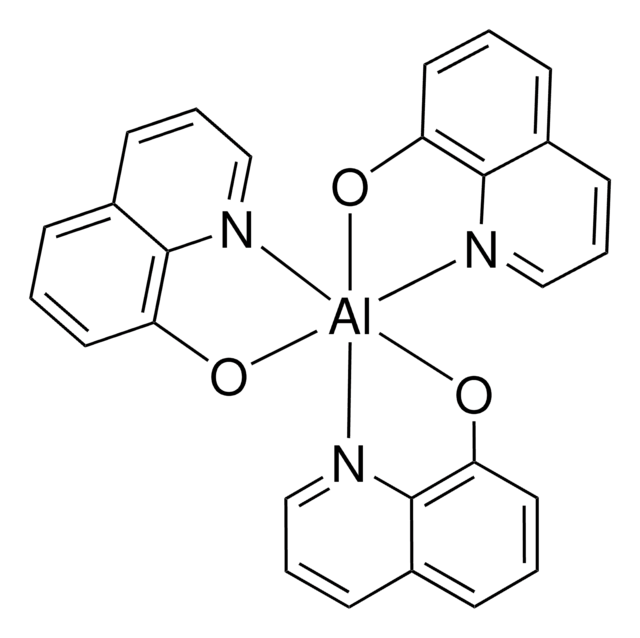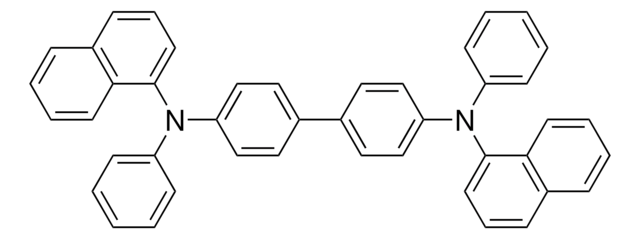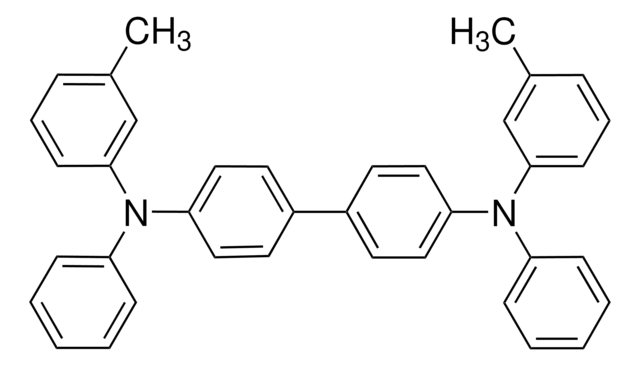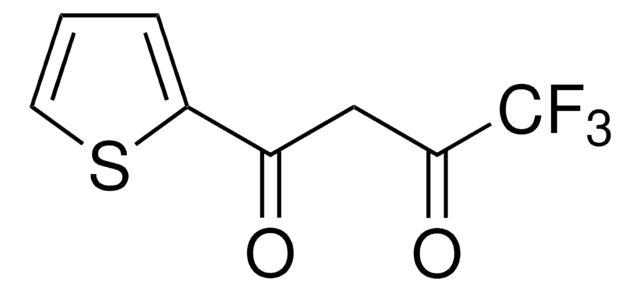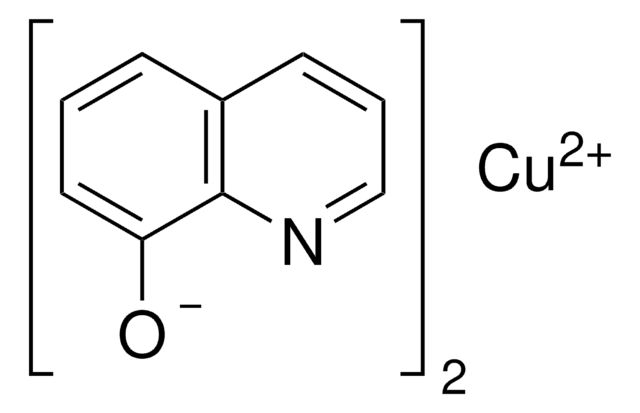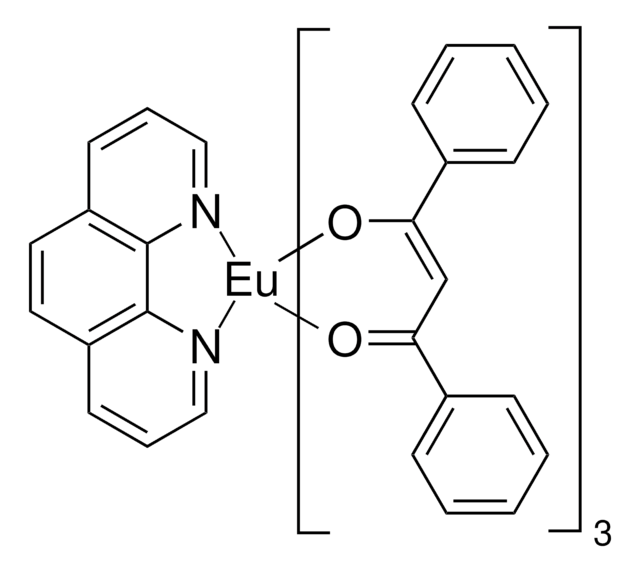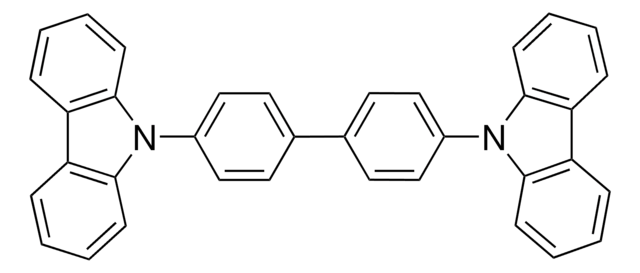444561
Tris-(8-hydroxyquinoline)aluminum
99.995% trace metals basis
Synonym(s):
8-Hydroxyquinoline aluminum salt, Alq3, Aluminum 8-hydroxyquinolinate, Aluminum oxinate, Tris-(8-hydroxyquinolinato)aluminum
About This Item
Recommended Products
Quality Level
Assay
99.995% trace metals basis
form
powder
mp
>300 °C (lit.)
Orbital energy
LUMO -3.3 eV
LUMO 3.3 eV
OLED Device Performance
ITO/MoO3/NPD/Alq3/BPhen/LiF/Al
ITO/NPD/CBP:Ir(ppy)3/BCP/Alq3/Mg:Al
ITO/NPD/TCTA/BCPO:Ir(piq)3 (7-8%)/BCP/Alq3/LiF/Al
ITO/NPD/TCTA/BCPO:Ir(ppy)3 (7-8%)/BCP/Alq3/LiF/Al
ITO/m-MTDATA/NPD/TTPhPhB/Alq3/LiF/Al
SMILES string
O([Al](Oc1cccc2cccnc12)Oc3cccc4cccnc34)c5cccc6cccnc56
InChI
1S/3C9H7NO.Al/c3*11-8-5-1-3-7-4-2-6-10-9(7)8;/h3*1-6,11H;/q;;;+3/p-3
InChI key
TVIVIEFSHFOWTE-UHFFFAOYSA-K
Looking for similar products? Visit Product Comparison Guide
General description
Application
Signal Word
Warning
Hazard Statements
Precautionary Statements
Hazard Classifications
Eye Irrit. 2 - Skin Irrit. 2 - STOT SE 3
Target Organs
Respiratory system
Storage Class Code
11 - Combustible Solids
WGK
WGK 3
Flash Point(F)
Not applicable
Flash Point(C)
Not applicable
Personal Protective Equipment
Choose from one of the most recent versions:
Already Own This Product?
Find documentation for the products that you have recently purchased in the Document Library.
Customers Also Viewed
Articles
Silylethyne-Substituted Pentacenes
In this article, we demonstrate that bis-styrylbenzene derivatives show promising characteristics for very low lasing thresholds and discuss the design considerations for organic lasing molecules.
Professor Shinar (Iowa State University, USA) summarizes the developments of a variety of sensor configurations based on organic and hybrid electronics, as low-cost, disposable, non-invasive, wearable bioelectronics for healthcare.
Related Content
Organic electronics utilizes organic conductors and semiconductors for applications in organic photovoltaics, organic light-emitting diodes, and organic field-effect transistors.
Our team of scientists has experience in all areas of research including Life Science, Material Science, Chemical Synthesis, Chromatography, Analytical and many others.
Contact Technical Service
